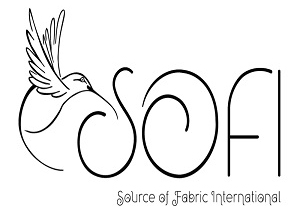The fabric production services sector has undergone significant transformations over the years, driven by technological advancements, sustainability demands, and evolving consumer preferences. Understanding these changes is crucial for businesses aiming to stay competitive in the ever-evolving fashion industry. This article explores the evolution of fabric production services, providing insights into the latest trends and innovations shaping the sector.
The Beginnings of Fabric Production
Fabric production dates back thousands of years, with early methods involving hand-spinning and weaving. As the demand for textiles grew, so did the need for more efficient production methods. The Industrial Revolution marked a turning point, introducing machinery that significantly increased production speed and volume.
1. Technological Advancements
Technological advancements have been at the forefront of the evolution of fabric production services. The introduction of computer-aided design (CAD) and manufacturing (CAM) has revolutionized the industry, allowing for precision and efficiency. Automated weaving machines and 3D knitting technology have further enhanced production capabilities, enabling complex designs and reducing waste.
2. Sustainable Practices
Sustainability has become a major focus in fabric production. The industry has seen a shift towards eco-friendly materials and processes. Organic cotton, recycled polyester, and biodegradable fabrics are now commonplace. Companies are also adopting water-saving dyeing techniques and zero-waste production methods, reflecting a growing commitment to environmental responsibility.
3. Customization and Personalization
The demand for customized and personalized fashion has led to changes in fabric production services. Advances in digital printing technology allow for on-demand production of unique designs, catering to individual preferences. This tendency lowers inventory costs and overproduction while simultaneously satisfying consumer demands.
4. Enhanced Quality Control
Quality control has improved significantly with the advent of advanced monitoring systems. Real-time data collection and analysis ensure consistent quality throughout the production process. This not only minimizes defects but also enhances the overall durability and performance of fabrics.
5. Integration of Smart Textiles
Smart textiles represent a significant leap in fabric production services. These innovative fabrics incorporate technology to provide additional functionalities, such as temperature regulation, moisture control, and even health monitoring. The integration of electronics into textiles opens up new possibilities for fashion and performance wear.
6. Digital Transformation
The digital transformation of fabric production services has streamlined operations and improved efficiency. From supply chain management to production scheduling, digital tools and platforms have enhanced coordination and transparency. This digital integration enables faster response times to market trends and consumer demands.
7. Globalization and Collaboration
The globalization of the fashion industry has led to increased collaboration among fabric producers worldwide. Advances in communication technology facilitate seamless cooperation, enabling businesses to source materials and expertise from different parts of the globe. This interconnectedness has fostered innovation and diversification in fabric production services. Must Read About A Complete Guide to Fabric Sourcing & Fabric Suppliers
The Role of SOFI in Fabric Production
At SOFI, we embrace these advancements to provide top-notch fabric production services. Our commitment to sustainability, quality, and innovation ensures that we deliver the best products to our clients. Whether you’re looking for custom designs, eco-friendly fabrics, or cutting-edge smart textiles, SOFI is your trusted partner in the fashion industry.
Conclusion
The evolution of fabric production services in the fashion industry reflects broader trends in technology, sustainability, and consumer preferences. By understanding and adapting to these changes, businesses can enhance their competitiveness and meet the ever-changing demands of the market. The advancements in technology, commitment to sustainability, and focus on quality and customization are reshaping the fabric production landscape, promising a dynamic and innovative future for the industry.
For businesses and designers seeking to stay ahead, embracing these trends is not just an option but a necessity. At SOFI, we are dedicated to helping you navigate this evolving landscape, providing the expertise and services needed to thrive in the modern fashion industry.


